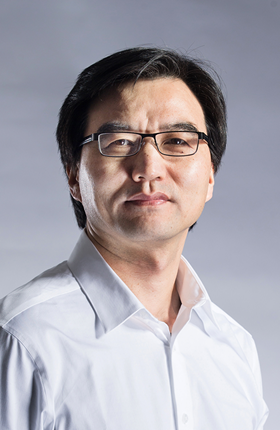
Prof. Dinggang SHEN, Ph.D., FIEEE, FAIMBE, FIAPR, FMICCAI
Professor, Founding Dean of the School of Biomedical Engineering, Director of IDEA Lab, IEEE Fellow, AIMBE Fellow, IAPR Fellow and MICCAI Fellow
ShanghaiTech University and Co-CEO of Shanghai United Imaging Intelligence Co., Ltd.
Biography
Dinggang Shen is a Professor and a Founding Dean with School of Biomedical Engineering, ShanghaiTech University, Shanghai, China, and also a Co-CEO of United Imaging Intelligence (UII), Shanghai. He is a Fellow of IEEE, The American Institute for Medical and Biological Engineering (AIMBE), The International Association for Pattern Recognition (IAPR), and The Medical Image Computing and Computer Assisted Intervention (MICCAI) Society. He was Jeffrey Houpt Distinguished Investigator and a Full Professor (Tenured) with The University of North Carolina at Chapel Hill (UNC-CH), Chapel Hill, NC, USA, directing The Center of Image Analysis and Informatics, The Image Display, Enhancement, and Analysis (IDEA) Lab, and The Medical Image Analysis Core. His research interests include medical image analysis, machine learning, deep learning, and computer vision. He has published more than 1500 peer-reviewed papers in the international journals and conference proceedings, with H-index 128 and over 70K citations. He serves as an Editor-in-Chief for Frontiers in Radiology, as well as an associate editor (or editorial board member) for eight international journals. Also, he has served in the Board of Directors, The Medical Image Computing and Computer Assisted Intervention (MICCAI) Society, in 2012-2015, and was General Chair for MICCAI 2019.
Fast Development and Deployment of AI Techniques for Real Medical Applications
Abstract
This talk will introduce our developed full-stack, full-spectrum Artificial Intelligence (AI, or deep learning) techniques for whole clinical workflow, from data acquisition to disease detection, follow-up, diagnosis, therapy, and outcome prediction (or evaluation), using multimodality data. The details of innovative technical development and implementation in both scanners and clinical pipelines (i.e., serving for fast MR, low-dose CT/PET acquisition, and clinical diagnosis/therapy) will be demonstrated, along with comparison with other state-of-the-art techniques.


